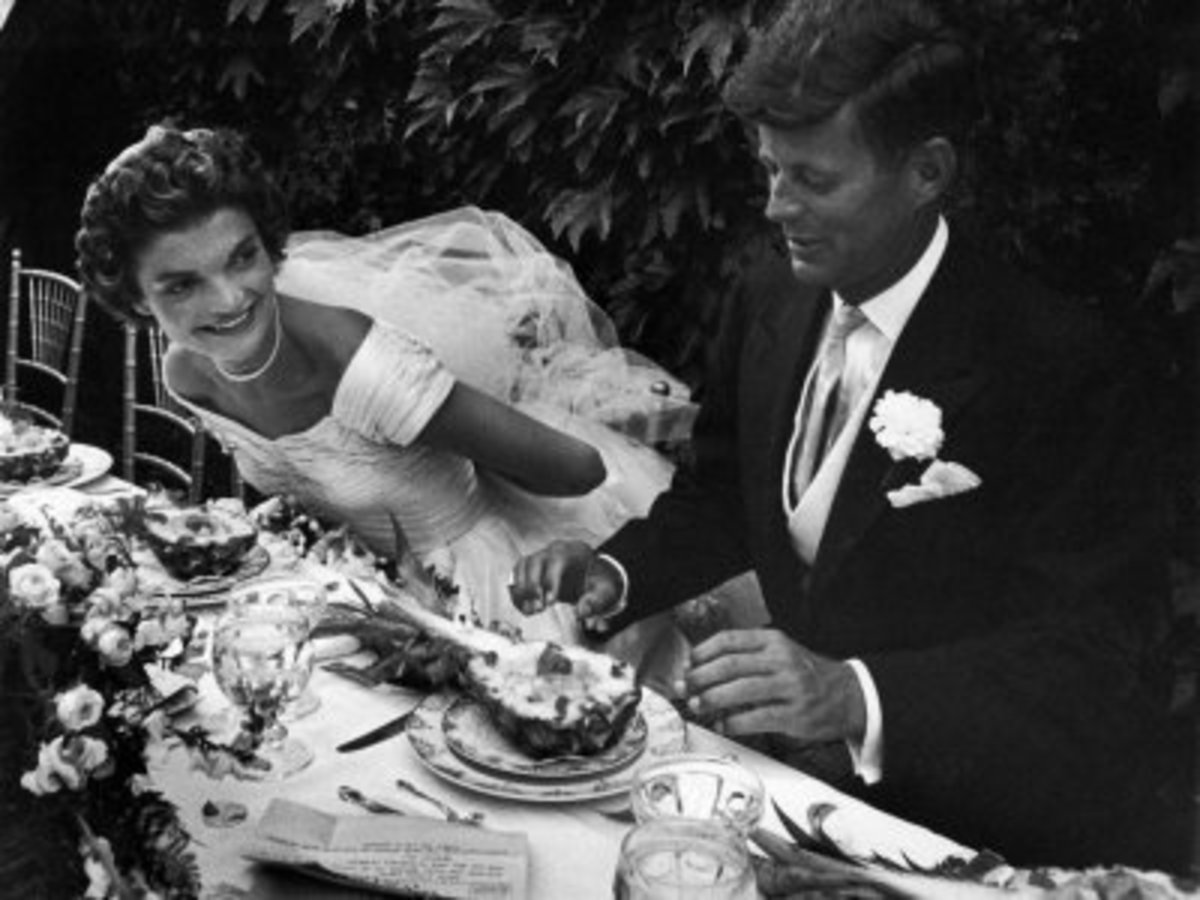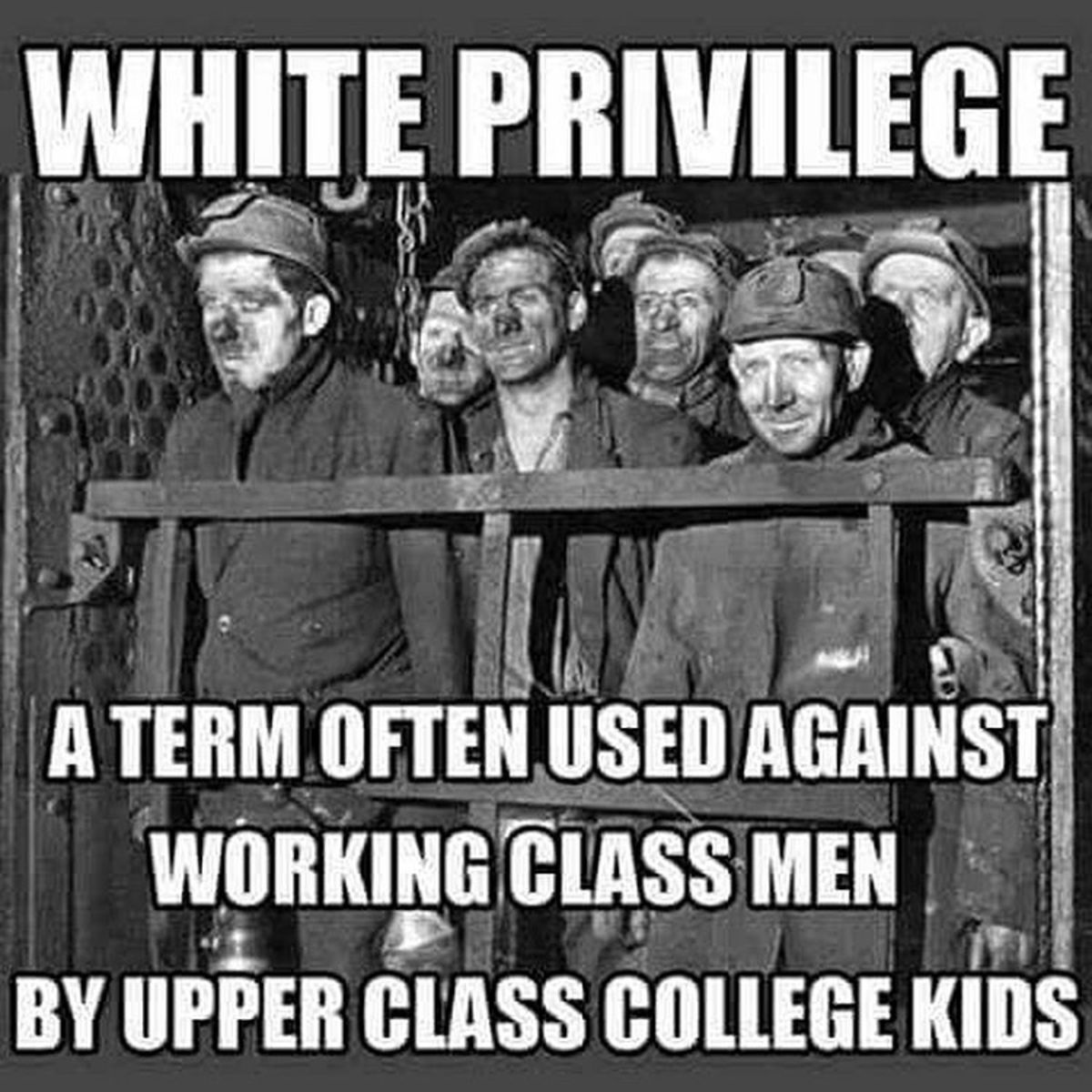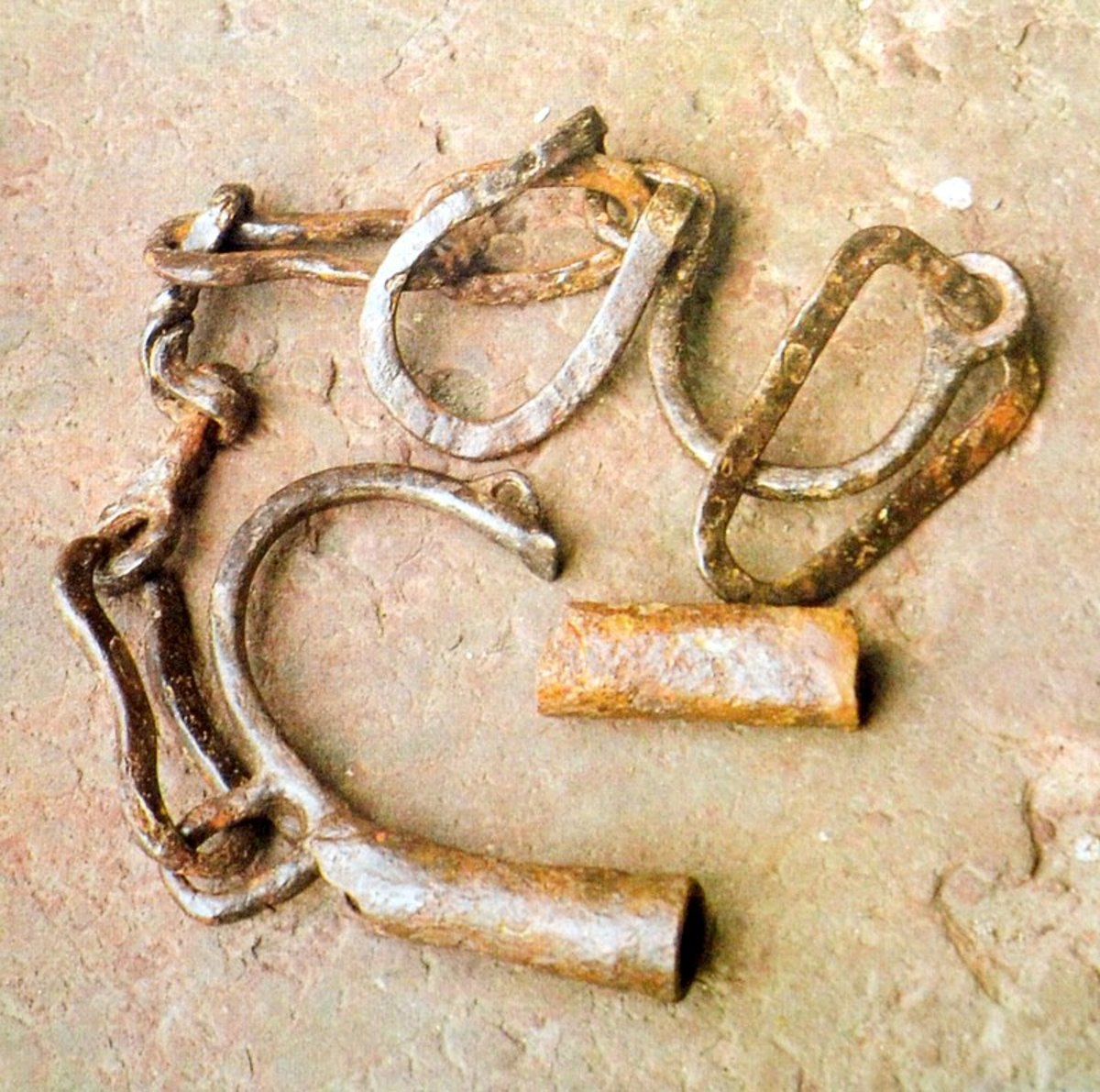So You Want to Join the Peace Corps
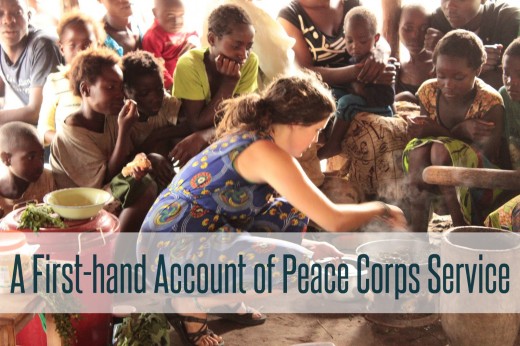
Fork in the Road
So, you're nearing the cessation of your collegiate career. You've spent innumerable hours cramming for exams that took you 25 seconds to realize you're going to fail, drank gallons of cheap coffee to push you through finals week, and most importantly, devoted roughly four years of your life to obtain a piece of parchment paper with your name on it. You deserve something big now - something incredible.
Your next big step will be out into the real world - cue nervous, audible gulp. Without any kind of warning, you're suddenly tethered to a job that once sparkled and now you're wondering if you made all the right choices in life. What about those art classes that you said you wanted to take? Or those acting workshops that truly resonated with you? We all have dreams and ideas, but deciding to pursue them is something entirely different.
What about serving in the Peace Corps? For about two years, I spent a great deal of time researching everything there is to know about serving. My heart revolved around the idea of jumping on a plane, flying half-way around the world, and punching my time card to serve in a foreign land. I became utterly engrossed with the idea of devoting 27 precious months of my life to serve others, to make a difference. I spent countless nights reading blogs and informational websites until the sun rose; all of this only fueling the philanthropic fire inside of me.
As time went on, my ideas have evolved and my goals have taken me in other directions. The Peace Corps' mission continues to have a very significant place in my heart, however I know that for now my own mission is to help others decide if the Peace Corps is something they would like to pursue. This article will lay out the specifics regarding the application process, challenges during in-country service, and what opportunities are available once you complete service.
After spending almost two years researching the Peace Corps, as well as reaching out to the agency's recruiters and current volunteers, I have acquired valuable knowledge surrounding the Peace Corp's goals and the program as a whole.
This article is meant to inform, as well as inspire. Deciding to pursue the Peace Corps is something that should not be taken lightly, after all you could potentially turn into someone's hero.
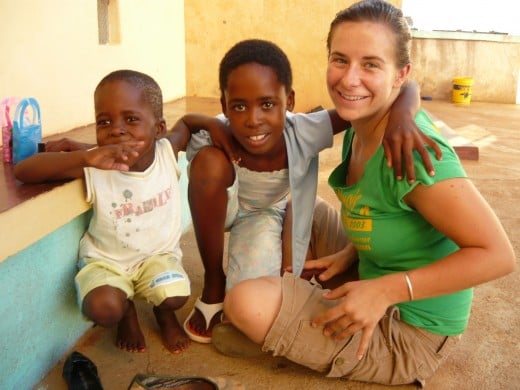
Search within Yourself: Is This Right for You?
Serving in the Peace Corps, like I said before, is a huge step in one's life. I will lay out a few major points everyone must know from the get-go:
- Typically, you must have at least a bachelors degree to be accepted.
- No bachelors degree? Extensive experience in a specialized area, such as agriculture, combined with general education may get you accepted.
- The application process takes a long time - on average between 8-12 months. It is widely suggested that you start the application process 1 year before you would be available to serve.
- The application process requires 3 references (an employment supervisor, a volunteer supervisor, and a personal reference)
- The application process also requires you to write two essays, no more than 500 words each. In the first essay, you will explain your motivations for wanting to join the Peace Corps. In the second essay, you will discuss any cross-cultural experiences that you've had.
- This is a 27 month commitment - approximately three months of in-country training, followed by 24 months of service.
- It is free to join - However, unless you have medical insurance, you may pay out of pocket to complete all mandatory health evaluations that are required during the application process. You may get reimbursed for some expenses.
- This is not a paid position - what you receive is a stipend, a living allowance that puts you at the average income of the community that you are serving. This will vary greatly depending on the region you serve. However, depending on your spending habits (are you thrifty?), you may be able to even build up some savings.
- You cannot pick where you serve. While you can state a geographic preference, it is highly unlikely that you will get placed there.
- Student loans - depending on the types of loans that you have, they may be deferred until after your service. Stafford (formerly known as guaranteed student loans), Perkins, direct, and consolidated loans can be deferred.
- Want to serve with a significant other? You must be married at least a year before you apply, and each of you must apply and be accepted separately.
- What about after service? If you complete your service, you will be given a readjustment allowance of approximately $8,000 (pre-taxes)* to return home with. You can spend it on whatever you like. Many volunteers put it toward their student loans.
- Want to go to graduate school after service? The Peace Corps offers financial aid and internships through the Paul D. Coverdell Fellows Program. It partners with over 70 schools throughout the country.
- Want to go straight to work after service? Returned Peace Corps volunteers receive one year of noncompetitive eligibility for employment in the federal government.
Source - Peacecorps.gov
* Updated amount for 2015
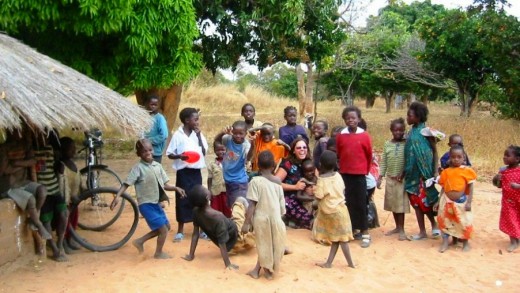
Be Honest with Yourself & Your Motivations
What are your reasons for wanting to join? Do you simply have a thirst for travel? Are you wanting to help communities in need? Explore another culture?
Because I've had the opportunity to speak with current volunteers, I've learned that service is not black and white, but rather filled with challenges. While, yes, you do get get to experience another culture and way of life, it's not like traveling to a foreign country for a few weeks and then returning home to your everyday comforts. As a Peace Corps volunteer, you are completely immersed in another culture, oftentimes one that's drastically different than your own, for 27 months. Do you have what it takes?
- Are you flexible? - Can you adapt to drastic changes?
- Are you accepting? - You will be surrounded by individuals whose lifestyle may not resemble your own.
- Patient - Are you willing to persevere even when challenges seem far too difficult to handle?
- Independent, but also a team player? During service, you may be the only PCV in your region. You may go many weeks at a time before you see another American.
- A self-starter? You will be responsible for developing projects and seeing them through to the end.
- Do you enjoy being around children? Everywhere you go, you will be surrounded by children.
- Do you enjoy being the center of attention? In the Peace Corps, you are the outsider. You will be the person walking down the street with everyone staring at you, all of them wondering what "The American" is up to.
- Can you truly be away from home for two years? What about friendships, significant others, and family? Two years is a long time. So much can, and will, happen that you will miss out on.
Many of you may be wondering how feasible my statements are as I have not served. And while you're right for questioning the validity and weight of my words, I will just say that I have invested a great deal of time learning almost everything there is to know about service (just ask my friends - that's all I talked about for about a year). But as with everything in life, you never truly know until you try. Until you serve, you will not know if it is right for you - if you are meant to be there.
However, I did want to add something special to this article. I've reached out to a current volunteer who agreed to do a Q&A about her time in the Peace Corps. Read below and enjoy!
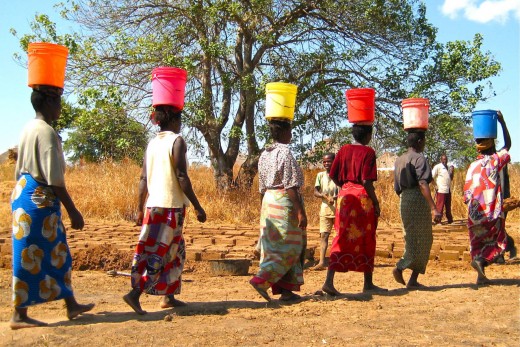

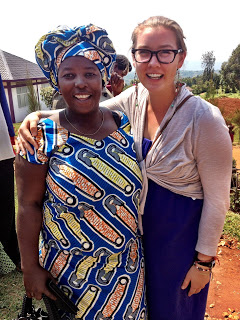
Interview with Former Peace Corps Volunteer, Claire Brosnihan
In order for me to really add some weight and justice to this article, I reached out to a current volunteer whose blog I regularly follow. Claire Brosnihan recently concluded her first 27-month stint in Rwanda, and decided to continue her service as a Returned Peace Corps Volunteer (RPCV). I've learned a great deal from her, and I admire her courage and benevolence.
If you'd like to read more about Claire's journey, visit her blog at http://seekingclaire-ity.blogspot.com/
First and foremost, tell us a little bit about yourself.
Claire: I'm currently serving as a Health and Community Development Peace Corps Volunteer in southwest Rwanda (Cyangugu), working on promoting public health in my community. I graduated from Notre Dame in 2011 with my BA in Political Science and Peace Studies, and I worked for the international non-profit Oxfam America before entering Peace Corps Rwanda in May 2012. I blog about my experiences - check out the link above.
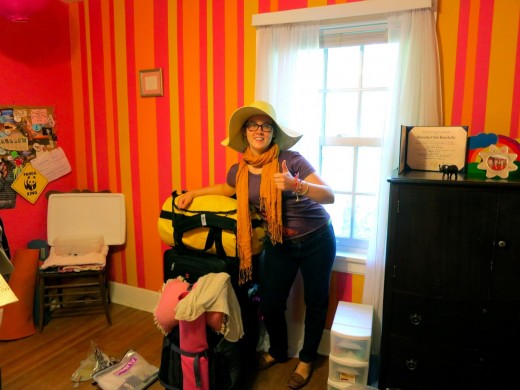
When did you first know that you wanted to join the Peace Corps?
Claire: I've always had an interest in other cultures, service, and new experiences, so Peace Corps seemed like a natural fit in a lot of different ways; I remember looking up information about it in high school. I applied my senior year of college.
What was the most difficult part of applying? Any advice for those applying?
Claire: The application process can be a little intimidating. First there's an online application, then an in-person interview, and then medical and legal clearance, and placement. I'd say the most difficult part was just sticking through the whole process, which can take a few months.
My advice would be to be honest in your application, and know your strengths and weaknesses. For example, if you studied Spanish in college and really want to go to Latin America in Peace Corps, don't feel bad about saying so in your interview. It's also important to do Peace Corps at a time that's right for you. Remember that you can do Peace Corps even in your 60s or 70s, and as a married couple.
Are you happy with where you were placed? If you could change where you are, would you?
Claire: Yes, I'm happy to be in Peace Corps Rwanda. There are positive and negatives to every country--many of which aren't apparent to tourists or from the outside. For example, it's nice being in a small, very safe, rapidly developing country like Rwanda, but there's also a lot of PTSD and a lack of social trust in many communities as a result of the genocide, which can be very hard on volunteers.
While I really really love talking to other Peace Corps Volunteers in other countries about their experiences, I think it can be a dangerous game to start comparing and wishing to be someplace else. There are definitely some days where I say, "Wouldn't it be awesome to be a Peace Corps Volunteer in Fiji or Costa Rica or fill-in-the-blank-country...?!" But the grass is always greener on the other side. It would be awesome if I could do Peace Corps in every country in the world!
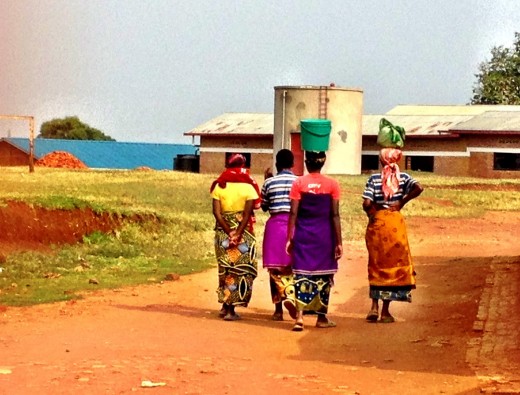
What is the most difficult part of service?
Claire: Missing people and events back home is definitely the hardest part of service for me. You do adjust to all the physical things like using latrines or having chickens and goats in buses with you. I'm really close with my family, and I miss them every day. There are important events like weddings and your friends having new babies that you really, really wish you could be there for. I've missed three of my good friends' weddings, and I'll miss my friend having a baby in a few weeks, and my older sister getting married as well. It's difficult seeing your friends hanging out without you, or knowing that a lot of things will have changed by the time your get back. But the silver lining is that in many ways you learn who your real friends are; the ones for whom two years and thousands of miles doesn't mean a thing.
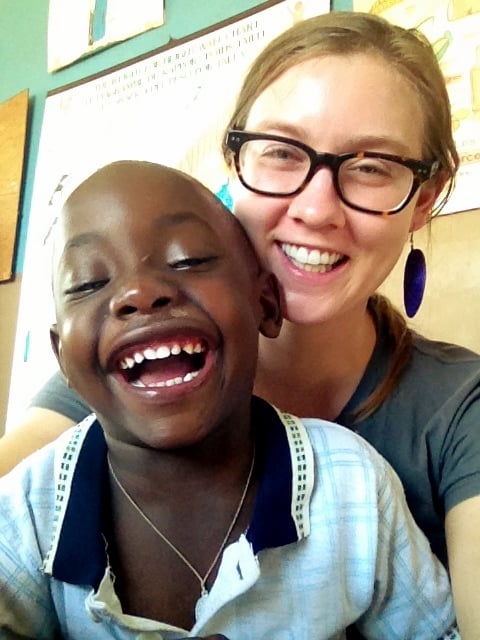
What is the greatest part of service?
Claire: The friendships and bonds I've made with people in my community and with other volunteers has been the most rewarding part of my service. I've learned so much from them, it's hard to put it into words.
Would you recommend Peace Corps to others?
Claire: Yes, I would. Peace Corps is an experience unlike any other. Being able to speak the native language and to become a member of a rural community for 2 years is something that not a lot of Americans experience. I would never have just moved to rural Rwanda by myself. It has been a truly life-changing experience. But I think it's also important to know that you will have days that you want to quit. There will be days that you have no idea what you're doing and you feel like a total idiot. And that's okay. And it's important to go in to Peace Corps knowing that it's not an extended vacation, and knowing that you're not going to save the world. The change you make might be very, very small. There are some very real and very hard things volunteers face. But the bad days pass, and the good experiences last a lifetime. Go for it!
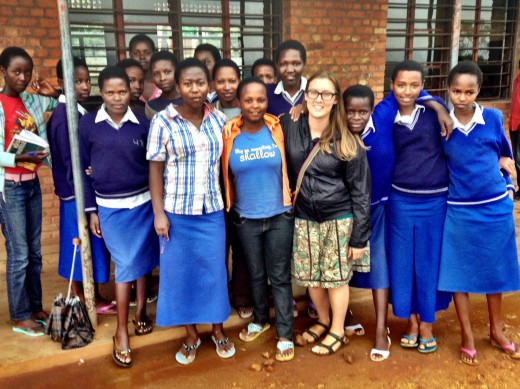

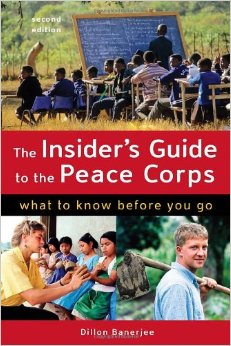
Resource
If you're serious about joining the Peace Corps, this book is a must read. This book answers the most wondered question by potential PCVs, including:
- What Peace Corps recruiters look for in your application;
- Items you should, and shouldn't, pack for your two-year trip;
- Useful gadgets and technology that help volunteers stay connected from far away;
- Real answers to personal questions about culture shock, safety, dating, homesickness, and more.
Rated 4.7 out of 5 stars on Amazon
Buy it now: The Insider's Guide to the Peace Corps: What to Know Before You Go
Should You Do It?
What makes Peace Corps service appealing to you?
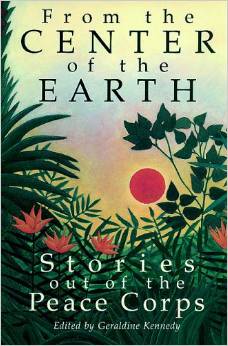
Resources
This book has first-hand accounts of life as a Peace Corps volunteer. Includes stories set in Kenya, the Caribbean, South Korea, Togo, Nepal, Zaire, Sierra Leone, Cameroon, and Ecuador.
Rated 4.9 out 5 stars on Amazon
Buy now: From the Center of the Earth: Stories Out of the Peace Corps
Peace Corps Mini Info Session
© 2013 M Carnahan

